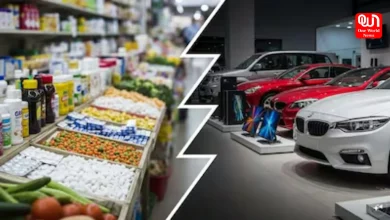What a Total Ban on Diesel Vehicles could Mean in India?
Exploring the Potential Consequences and Alternatives in the Wake of a Total Ban on Diesel Vehicles in India
In recent years, the environmental concerns surrounding diesel vehicles have gained significant attention globally. With India facing severe air pollution challenges, discussions about implementing a total ban on diesel vehicles have intensified. This article delves into what a total ban on diesel vehicles could mean for India, examining its potential implications on transportation, the environment, and the economy.
Read more:- Vegetarianism And Environment: Can Meatless Diet Really Save The Environment?
Government Panel Proposes Total Ban on Diesel Four-Wheelers in Indian Cities by 2027
A government panel, established by the Ministry of Petroleum and Natural Gas, has recently put forward a significant recommendation that could reshape transportation in Indian cities. The proposal suggests a complete ban on diesel-powered four-wheel vehicles in cities with populations exceeding 1 million by the year 2027. Instead, the panel proposes a transition to electric and gas-fueled vehicles, marking a substantial acceleration in the ongoing shift towards cleaner fuels.
The urgency of this shift is emphasised by the Energy shift Advisory Committee, which is chaired by former petroleum secretary Tarun Kapoor. By eliminating diesel vehicles from urban landscapes, the committee aims to tackle the persistently high levels of air pollution and reduce the environmental impact caused by diesel engines.
If the proposal is accepted and implemented, it would undoubtedly bring about serious disruption in the transport sector. Both companies and citizens would be directly affected by the ban, necessitating adjustments to their transportation choices and strategies. Manufacturers would need to realign their production lines to prioritize electric and gas-powered vehicles, while individuals and businesses would have to adapt to new options available in the market.
The proposed ban aligns with the committee’s vision for a sustainable and efficient city transport system. In addition to the ban on diesel four-wheelers, the committee recommends a future transportation mix comprising metro trains and electric buses by the year 2030. This holistic approach aims to alleviate traffic congestion, reduce carbon emissions, and improve the overall quality of urban transportation.
While the proposed ban signifies a radical shift towards greener alternatives, it also presents challenges that need to be addressed. One of the key concerns is the availability and accessibility of charging infrastructure for electric vehicles. A robust charging network will be vital to support the anticipated surge in electric vehicle usage. Additionally, the government and industry stakeholders will need to collaborate to ensure the availability of affordable and reliable electric and gas-fueled vehicles to meet the increased demand.
If implemented, the ban would not only have a significant impact on transportation but also on public health and the economy. The reduction in air pollution levels would improve the quality of life for citizens, reducing the risks of respiratory diseases and other health issues associated with poor air quality. Furthermore, this transition would create new opportunities for job creation and stimulate investments in the development and manufacturing of electric and gas-fueled vehicles.
The government panel’s recommendation to ban diesel four-wheelers in Indian cities by 2027 signifies a crucial step towards a cleaner and more sustainable future. While the proposal holds great promise in addressing environmental concerns, its successful implementation would require collaborative efforts from all stakeholders involved. By embracig this transition and investing in supporting infrastructure, India can pave the way for a greener transport sector, benefiting both the current and future generations.
Examining Potential Implications on Transportation, Environment & The Economy
- Environmental Impact:
A total ban on diesel vehicles could lead to a significant reduction in air pollution levels across India. Diesel engines are known for emitting harmful pollutants, including particulate matter (PM), nitrogen oxides (NOx), and sulfur oxides (SOx). By eliminating diesel vehicles, the country could make significant strides in improving air quality and mitigating the adverse health effects associated with pollution.
- Transition to Electric Vehicles (EVs):
A total ban on diesel vehicles would necessitate a massive transition to electric vehicles. It would create a compelling impetus for the adoption of EVs, as they offer a cleaner and more sustainable alternative to diesel-powered vehicles. This transition would require robust infrastructure development, including an extensive network of charging stations and incentives to encourage EV adoption.
- Automotive Industry and Economic Impact:
A total ban on diesel vehicles would undoubtedly disrupt the automotive industry in India. Manufacturers heavily invested in diesel technology would need to recalibrate their production lines to focus on EVs or other alternative fuel options. While this transition could result in short-term challenges, it also presents an opportunity for new investments, job creation, and the emergence of a greener automotive industry.
- Public Transportation and Logistics:
Public transportation, especially buses and commercial vehicles, currently heavily relies on diesel engines. A total ban on diesel vehicles would necessitate a shift towards cleaner alternatives, such as electric buses or hydrogen-powered vehicles. This transition could enhance the sustainability of public transportation systems and reduce emissions in densely populated urban areas.
- Challenges and Infrastructure:
Implementing a total ban on diesel vehicles comes with its own set of challenges. One of the primary hurdles is the development of robust charging infrastructure to support the increased demand for electric vehicles. Additionally, the government would need to address concerns related to battery production, recycling, and disposal to ensure a sustainable transition.
- Impact on Fuel Consumption and Imports:
A total ban on diesel vehicles could significantly reduce the country’s diesel consumption and reliance on imported crude oil. This would have economic implications, as India is one of the largest importers of crude oil. A transition to cleaner fuels would allow the country to diversify its energy sources and reduce its vulnerability to oil price fluctuations.
- Resale Value and Consumer Sentiment:
A total ban on diesel vehicles would impact the resale value of existing diesel vehicles, causing potential financial loss for owners. Moreover, consumer sentiment would shift towards alternative fuel vehicles, potentially resulting in a decline in demand for diesel cars. This shift in preferences would also affect the used car market and the overall automotive ecosystem.
Conclusion:
A total ban on diesel vehicles in India could bring about significant changes in transportation, the environment, and the economy. While it would help combat air pollution and promote sustainable mobility, the transition would require careful planning, infrastructure development, and support from the government. Embracing electric vehicles and alternative fuel technologies can pave the way for a cleaner and greener future, benefiting both current and future generations.
Like this post?
Register at One World News to never miss out on videos, celeb interviews, and best reads.








